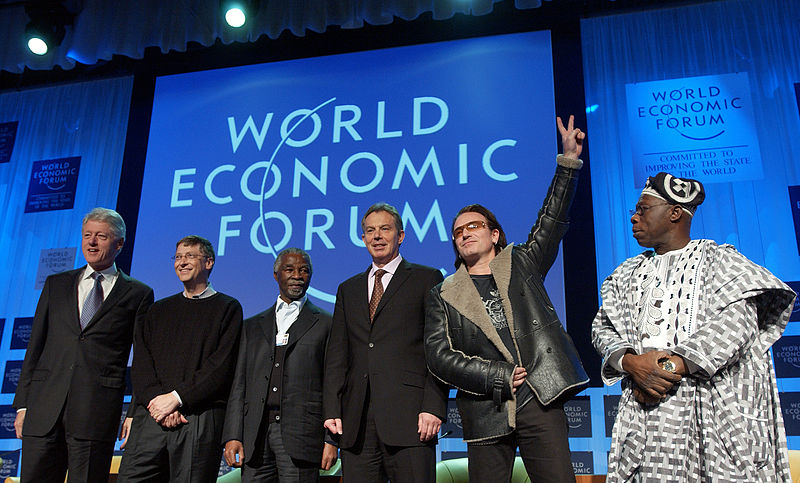Those who first heard about the forum, are traditionally interested in the same questions. And those who are already well aware of the event, can just clarify a few topical issues.
1. What is the WEF?
The World Economic Forum in Davos (WEF) is a private foundation headquartered in Geneva. It is supported by international members and partners who make a financial contribution to organization of the annual meeting, where they share their experiences and views on various issues. The central event is held annually in Davos, Switzerland.
2. Who is the forum’s partner?
This is a group of 100 multinationals such as ABB, Nestle, Barclays, Credit Suisse, Deloitte, Deutsche Bank and Google. The partners set agenda of the World Economic Forum and participate in its financing, bringing 115 thousand francs every year.
3. Who are the WEF’s members?
According to the WEF, its audience consists of thousands of the world’s largest companies, a total of about 1200. Each participant pays 31,500 francs a year.
4. How much does the WEF cost?
Partners and members of the WEF pay 45 thousand francs for their manager or president’s participation in the Davos Forum.
Political representatives and guests, however, receive a personal invitation to attend the WEF.
5. What about security?
The federal government is engaging up to 5000 soldiers to ensure safety during the World Economic Forum, and is allocating 28 million francs to the army budget. Furthermore, additional 9 million francs for the police needs and other expenses for security come from the federal treasury, canton of Graubünden and Davos community.
6. Why is the WEF so popular?
The forum in Davos manages to gather over 2,500 representatives of politics, business, science and media from more than 90 countries around the world. WEF claims that it is trying to improve the world.
7. Do the WEF activities lead to changes in the world?
Indirectly. Purpose of the WEF is to promote dialogue and exchange of ideas. The forum has become a platform for important meetings and initiatives.
8. What do critics say?
Representatives of civil society qualify the forum as a "club of the rich entrepreneurs", which offers good ideas, but generally pursues its own interests. Davos is seen as an engine of globalization, which aggravates poverty and pollution in the world.
9. Does the WEF take these allegations seriously?
Partially. For several years, the Forum has also been addressing issues of social justice and sustainable development, and has been inviting representatives of civil society, scientists and artists.
source: swissinfo.ch
1. What is the WEF?
The World Economic Forum in Davos (WEF) is a private foundation headquartered in Geneva. It is supported by international members and partners who make a financial contribution to organization of the annual meeting, where they share their experiences and views on various issues. The central event is held annually in Davos, Switzerland.
2. Who is the forum’s partner?
This is a group of 100 multinationals such as ABB, Nestle, Barclays, Credit Suisse, Deloitte, Deutsche Bank and Google. The partners set agenda of the World Economic Forum and participate in its financing, bringing 115 thousand francs every year.
3. Who are the WEF’s members?
According to the WEF, its audience consists of thousands of the world’s largest companies, a total of about 1200. Each participant pays 31,500 francs a year.
4. How much does the WEF cost?
Partners and members of the WEF pay 45 thousand francs for their manager or president’s participation in the Davos Forum.
Political representatives and guests, however, receive a personal invitation to attend the WEF.
5. What about security?
The federal government is engaging up to 5000 soldiers to ensure safety during the World Economic Forum, and is allocating 28 million francs to the army budget. Furthermore, additional 9 million francs for the police needs and other expenses for security come from the federal treasury, canton of Graubünden and Davos community.
6. Why is the WEF so popular?
The forum in Davos manages to gather over 2,500 representatives of politics, business, science and media from more than 90 countries around the world. WEF claims that it is trying to improve the world.
7. Do the WEF activities lead to changes in the world?
Indirectly. Purpose of the WEF is to promote dialogue and exchange of ideas. The forum has become a platform for important meetings and initiatives.
8. What do critics say?
Representatives of civil society qualify the forum as a "club of the rich entrepreneurs", which offers good ideas, but generally pursues its own interests. Davos is seen as an engine of globalization, which aggravates poverty and pollution in the world.
9. Does the WEF take these allegations seriously?
Partially. For several years, the Forum has also been addressing issues of social justice and sustainable development, and has been inviting representatives of civil society, scientists and artists.
source: swissinfo.ch





